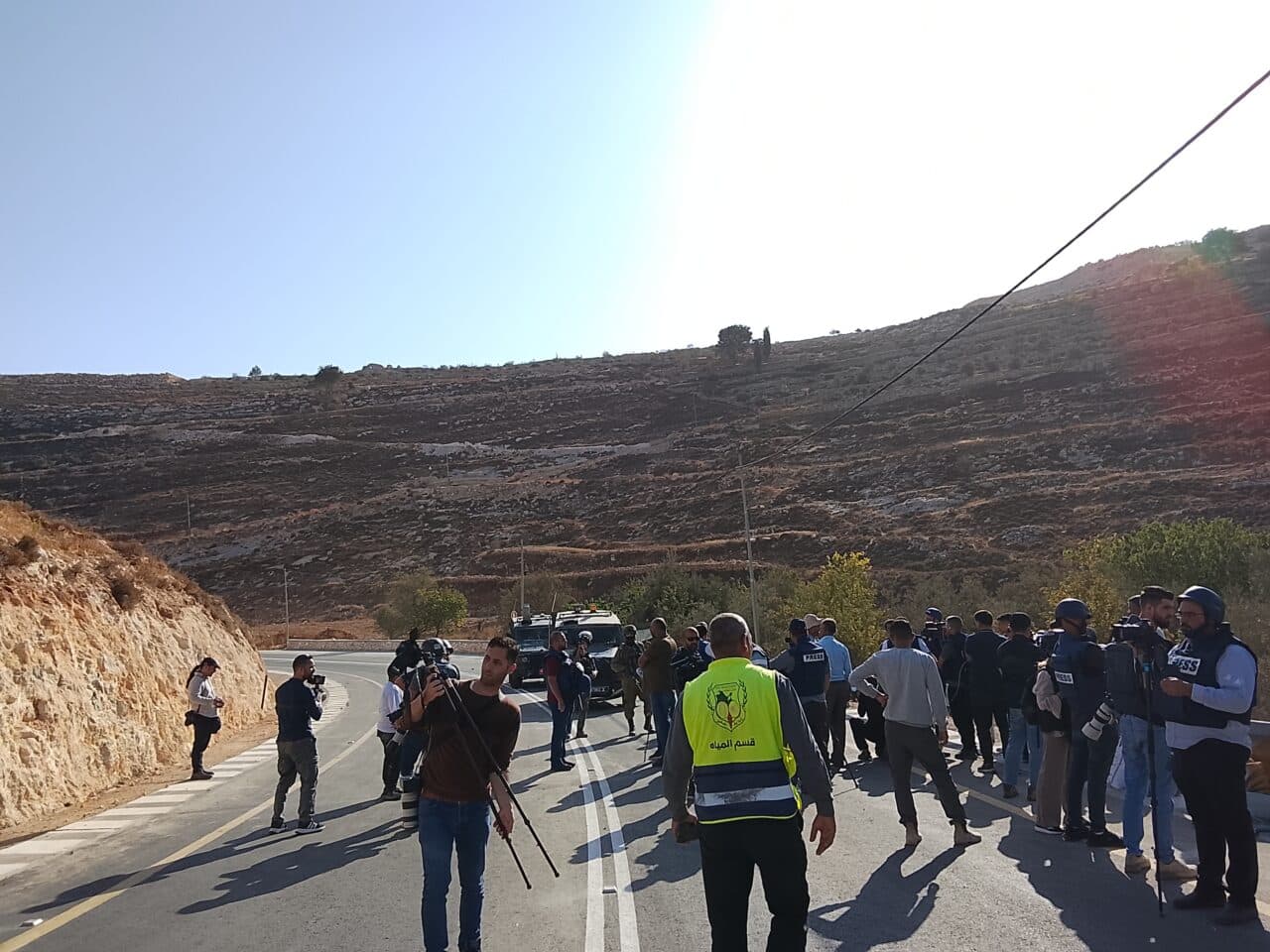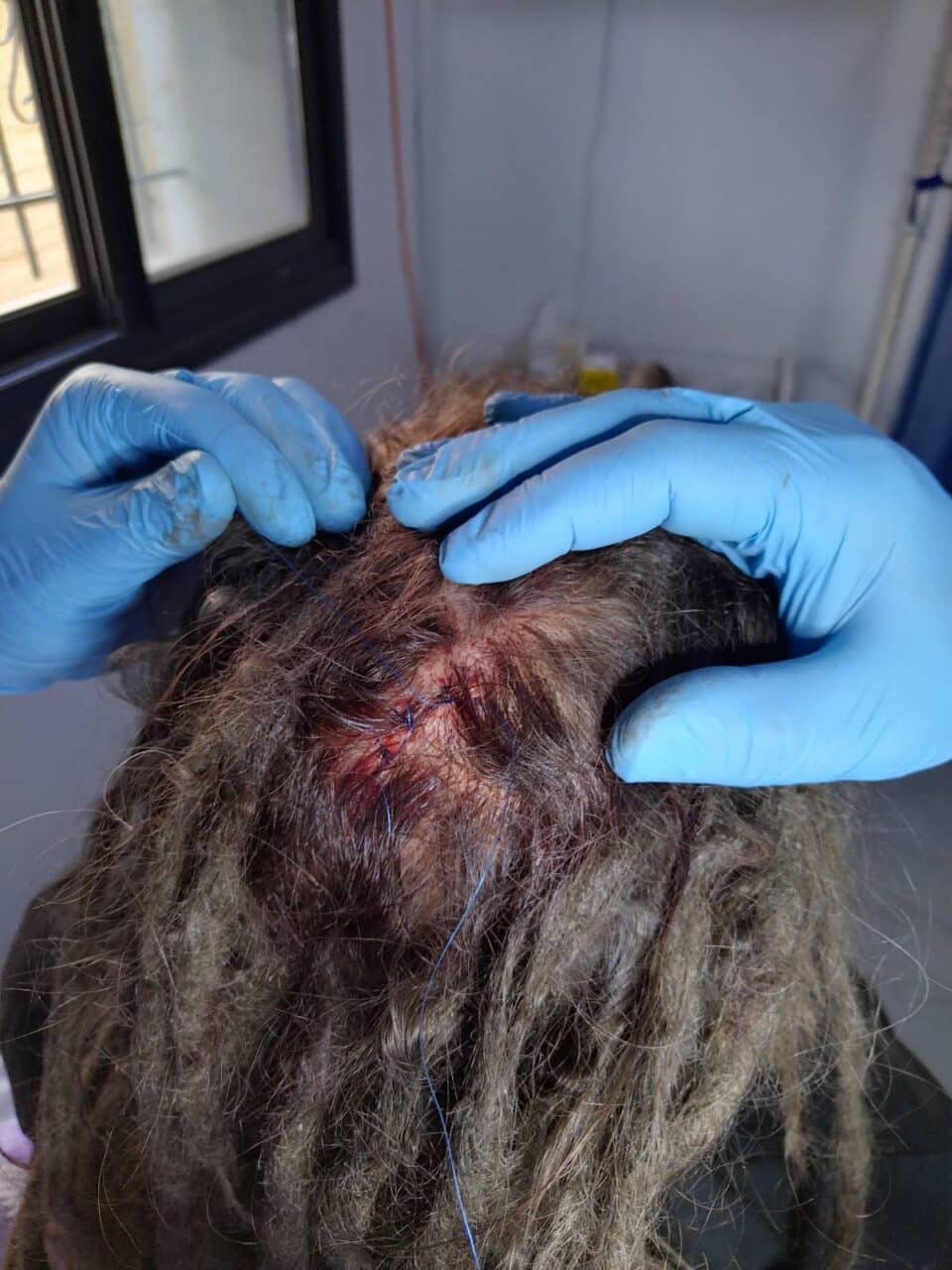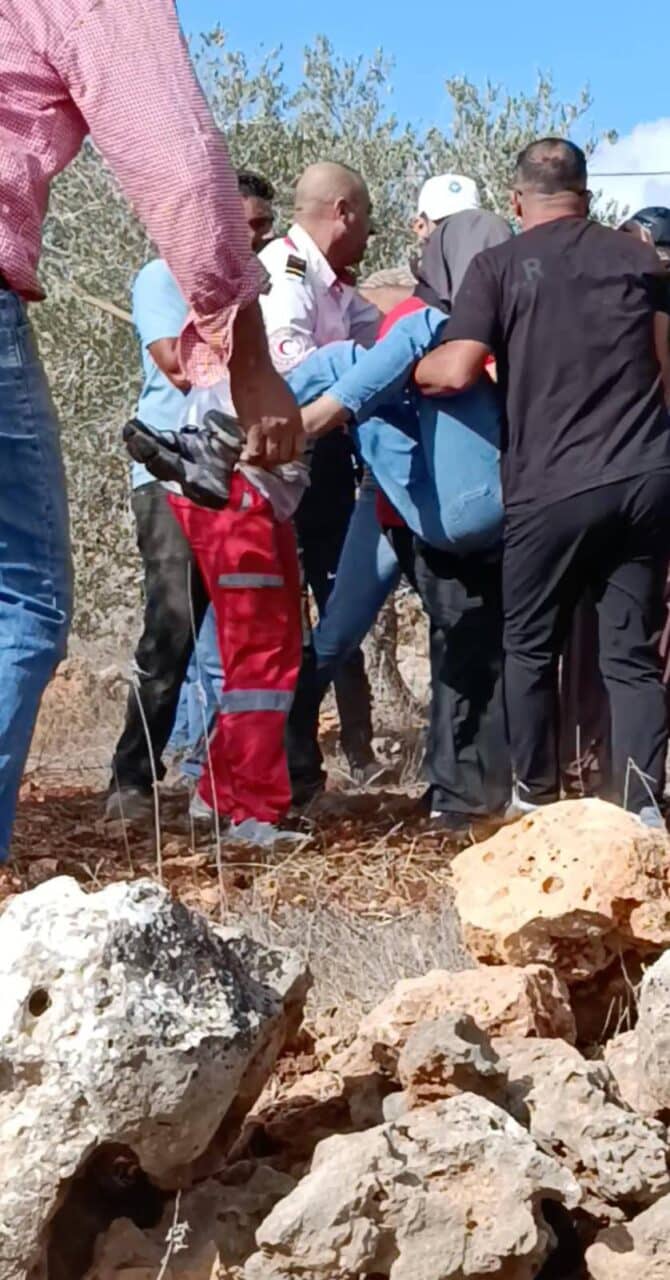Tag: Olive harvest
-
Army Prevents Harvest in Sa’ir, Al-Khalil
Thursday, October 23, 2025, in Sa’ir, a village near Al Khalil — Israeli army declares Palestinian Olive Groves a “Closed Military Zone” and forcibly remove olive harvesters About 100 citizens of the Municipality of Sa’ir marked the opening of the olive harvest season by attempting to harvest their olives in a location from which they…
-
For immediate release: Settlers Injure a Palestinian Woman and Two International Activists in TurmusAyya
October 19, Turmusayya, East Ramallah — Around 50 settlers attacked farmers and their supporters leaving a Palestinian woman as well as a Swedish activist and an Italian activist mildly to severely injured. Settlers also torched five vehicles and damaged others with stones. The attack was carried out under the watch of Israeli soldiers observing from…
-
Settler violence escalates and Israeli army continue to block farmers from accessing their olive groves on Jabal Qamas, Beita
Settler violence escalates and israeli army continue to block farmers from accessing their olive groves on Jabal Qamas, Beita After more than 4 years of struggle on the land of Jabal Sabih, during which 19 Beita residents and our comrade Ayşenur Ezgi Eygi were martyred while protesting the establishment of the Evyatar outpost, the resistance…



